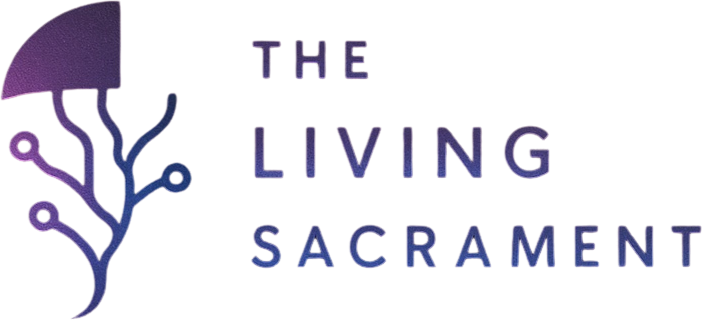Depression can make everything feel heavy. It steals motivation, flattens joy, and makes simple tasks feel like climbing a mountain. For decades, antidepressants and talk therapy have been the main options, but not everyone finds relief. That’s why scientists are exploring psilocybin, the active compound in magic mushrooms, as a new way to lift the fog.
A Shift in Perspective: How Psilocybin Changes the Game
In traditional antidepressant treatment, relief can take weeks. Psilocybin, on the other hand, has shown improvements in mood within hours of a single session. In 2021, a groundbreaking study published in The New England Journal of Medicine compared psilocybin to the standard antidepressant escitalopram. The results? Both worked, but psilocybin acted faster and led to deeper emotional breakthroughs for many participants.
Dr. Robin Carhart-Harris, who led the trial, described psilocybin therapy as “a catalyst for change.” Instead of dulling emotions, it seems to reconnect people with them, allowing suppressed feelings to surface and heal.
What Happens in the Brain
Once ingested, psilocybin is converted into psilocin, which binds to serotonin receptors in the brain, specifically 5-HT2A receptors. This interaction changes the flow of brain activity, especially in regions that regulate emotion and self-awareness.
According to CNS Spectrums (Rucker et al., 2022), psilocybin reduces activity in the default mode network (DMN), a system often overactive in people with depression. The DMN is the part of the brain that plays internal monologues and replays past regrets. When it quiets down, the sense of being “stuck in your head” often fades, similar to what’s described in How Psilocybin Boosts Neuroplasticity and Healing.
The result? Increased mental flexibility. People often describe it as seeing themselves from a new angle, as if someone turned the lights back on inside their minds.
The Human Side of the Data
Numbers tell one story, but people tell another. I know someone who battled depression for over ten years and tried nearly every medication available. Nothing really helped until they joined a psilocybin-assisted therapy study. Afterward, they said it felt like “a weight was lifted that I didn’t even realize I was carrying.” That feeling lasted months.
Stories like that aren’t rare, many users of magic mushrooms. In the Vargas et al. (2020) review of psilocybin studies, participants consistently reported emotional release, clarity, and renewed purpose. The striking part is that these effects often came after just one or two guided sessions, not months of daily pills.
Inside a Psilocybin Session
Clinical psilocybin therapy is done in a controlled, calm environment with trained guides. Participants usually lie down with eyes closed, listening to music while the psilocybin takes effect.
The experience itself can be intense, waves of emotion, vivid imagery, or deep personal insight, but those moments are part of the healing. Therapists are there to support the process and help participants integrate what they experience afterward.
In the NEJM study, most participants described the session as one of the most meaningful events of their lives. It wasn’t about escaping depression, but confronting it, and finding compassion in the process.
Why It Works Differently Than Antidepressants
Traditional antidepressants mainly boost serotonin levels over time. Psilocybin, however, appears to reorganize the brain’s network connections in a single powerful session. Instead of masking symptoms, it helps the brain find new pathways to process emotion.
A review in CNS Spectrums found that psilocybin increases communication between brain regions that rarely interact, while temporarily lowering rigid control from the DMN. This “reset” may explain why so many people feel emotionally renewed, not just chemically adjusted.
In short, psilocybin helps the brain step out of its usual loops and see new possibilities.
Safety and Clinical Promise
Despite its powerful effects, psilocybin has a strong safety record in controlled settings. In studies involving hundreds of participants, serious side effects were rare. Common short-term effects include mild nausea, anxiety during the session, or temporary confusion, but these usually fade as the experience unfolds.
The key is supervision. Researchers stress that psilocybin should only be used under professional guidance. It’s not a casual remedy, it’s a tool that requires the right conditions to work safely and effectively.
Direct Answer: Can Psilocybin Help With Depression?
Yes. Clinical research shows psilocybin can significantly reduce depressive symptoms, often within hours, with benefits lasting weeks or even months. It works by altering serotonin activity and improving brain network flexibility, helping people process emotions more freely.
It’s not a cure-all, but for those who haven’t found relief through traditional medicine, psilocybin-assisted therapy offers new hope.
Final Thoughts
Psilocybin isn’t about escaping reality, it’s about reconnecting with it. What makes it stand out is its ability to combine biology and psychology in one experience. The brain resets, emotions flow, and for many, a new sense of clarity appears.
As more studies confirm these effects, psilocybin could mark one of the biggest shifts in mental health treatment in decades. For now, it reminds us of something simple but profound: sometimes, healing begins when the mind finally lets go.
Sources
Carhart-Harris, R. et al. 2021 – Trial of Psilocybin versus Escitalopram for Depression, The New England Journal of Medicine.
Vargas, A. et al. 2020 – Psilocybin as a New Approach to Treat Depression and Anxiety in the Context of Life-Threatening Diseases: A Systematic Review and Meta-Analysis of Clinical Trials, Biomedicines.
Rucker, J. J. et al. 2022 – Psilocybin in Neuropsychiatry: A Review of Its Pharmacology, Safety, and Efficacy, CNS Spectrums.

